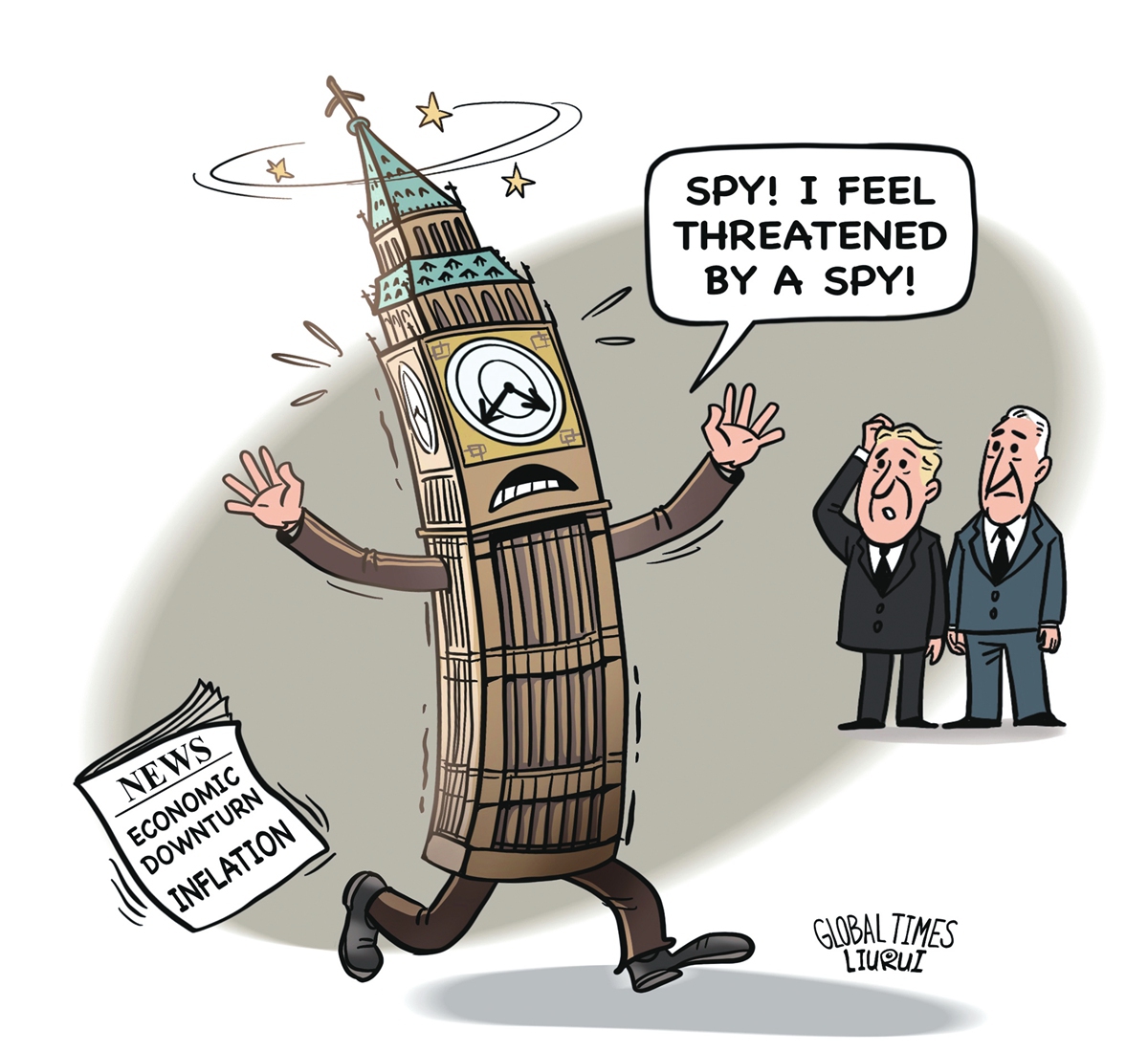
Illustration: Liu Rui/Global Times
In recent years, Britain's Secret Intelligence Service has intensified its attacks on China for alleged spying activities in Britain. However, if the SIS wants to root out operatives working undercover to steal the country's secrets, they should perhaps ask themselves. The arrest of a businessman surnamed Huang by China's Ministry of State Security brings attention to the hypocrisy of the spymasters at MI6.
Huang, the head of an overseas consultancy, is accused of serious offences. He is said to have worked for SIS for about nine years, using the specialist skills and equipment provided to him after being recruited to steal state secrets. The MSS says that behind his façade as a businessman, his undercover job was to collect China-related intelligence for the British espionage agency and identify potential recruits.
It smacks of double standards. What else would you call repeatedly attacking another state by accusing it of something, and then cynically behaving in the same way?
Last year, the head of MI6, Richard Moore, said in2023 that China presented "an epoch-defining challenge" and that his organization commits more of its resources to Beijing's activities than to any other country. It is not the first time he criticized China. In 2021, he described China ominously as "an authoritarian state, with different values from ours."
The UK's assaults on China come in many forms. They can be a warning of vague, unsubstantiated allegations about individuals having undue influence on British politicians. They can come as personal attacks on people of Chinese heritage simply because they work with influential decision-makers to raise issues of concern to the UK's Chinese community (but without real evidence to back up the slurs). They can even come in the form of sudden arrests by police accusing people of serious espionage offences - and then letting those people go free without charge. A common feature of these events is that they created a great deal of smoke without fire - generating much Sinophobic sentiment fueled by unsupported allegations. Nothing came of them.
The most recent example is of Chris Cash, a researcher in the UK parliament, who was arrested, with an associate, under espionage laws. He could hardly be described as pro-China - he actually worked for an anti-China research group and vehemently denied wrongdoing. The substance of the investigation seems to have been that he had contact with influential politicians interested in Chinese affairs. It looked like guilt by association. Neither he nor his colleague have been charged.
Cash's arrest happened almost a year ago, but it did not become public knowledge until it was leaked to the British media six months later, creating negative publicity, at about the same time that Beijing was hoping to improve China-UK relations at a high level.
Two years ago, Christine Lee, a London-based layer of Chinese origin, was accused by Britain's domestic intelligence service, MI5, of being a spy for Beijing - and yet again, no arrests or charges followed. All that happened was that her reputation - and goodwill toward China - was severely damaged. The agency accused her of being "involved in political interference activities" in the UK. Lawmakers in the House of Commons were also given a so-called "interference alert" - the first issued in at least 80 years. Lee knew nothing about it until she saw media reports branding her "an enemy of the state." She later launched legal action against MI5 in a bid to clear her name.
Britain's intelligence services have clearly identified China as a target for their operations. Is one aspect of that to cast suspicion on people simply because of their Chinese background or with personal connections to China, or with a special interest in China? Why is there so much smoke without any fire, so many accusations without substantiation? In the Huang case London stands accused of doing the very thing it accuses Beijing of doing. It's astonishing hypocrisy, especially when the West has so often been caught out in the past.
The author is a journalist and lecturer in Britain. opinion@globaltimes.com.cn




